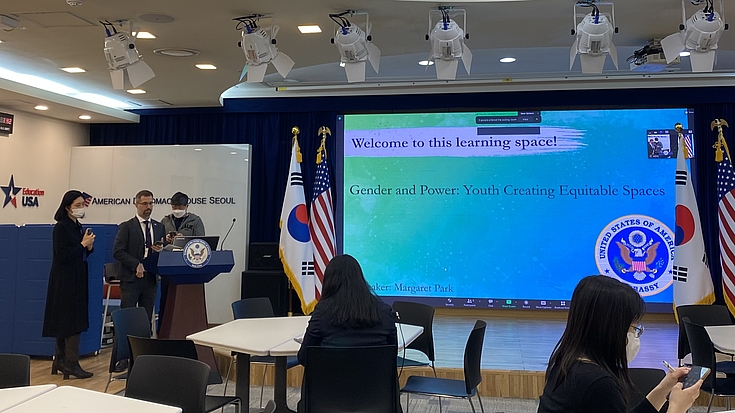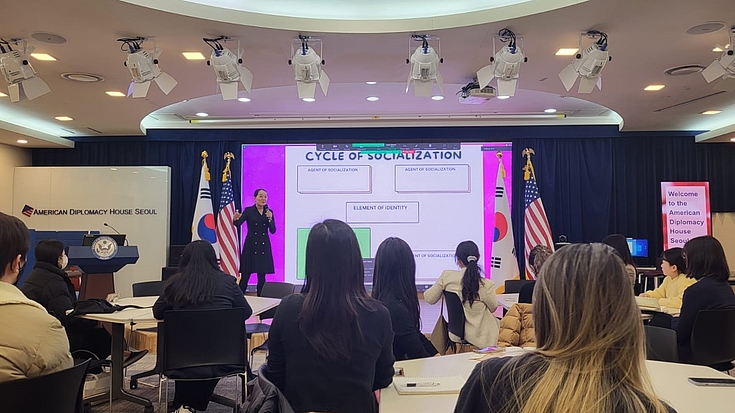Event
HSF’s research interns attend the “Gender and Power: Youth Creating Equitable Spaces” event at the American Diplomacy House in Seoul

On the 14th of March, HSF’s research interns Johannes Hollunder, Annett Fischer, and Belinda Maier participated in the hybrid event “Gender and Power: Youth Creating Equitable Spaces”, held at the American Diplomacy House in Seoul, South Korea. The speaker of the event was Margaret Park, DEI (Diversity, Equity, and Inclusion) Consultant and school leader. The first topic addressed by the speaker was implicit gender biases. She explained the meaning behind gender biases and how people develop implicit biases based on their own experiences. These gender biases can be seen, for instance, in the fact that women are more judged based on their appearance than men, whose appearances are usually not associated with their competence, or the fact that especially mothers are accused of not having leadership potential, while men are seen as even stronger leaders when they have kids. She continued that these unchecked biases make women feel like they are not good enough or do not belong in certain positions, even if they are overqualified for them.

In the following, the speaker first showed the audience an explanatory video on the term “patriarchy” and then explained the reason for society’s patriarchy by thoroughly describing the cycle of socialization. She illustrated how various agents of socialization, such as family, media or religion, convey certain messages to the individual and thus shape one’s world view through unconscious internalization. In the course of life, one is taught that there are people with preferential treatments and that maintaining the status quo goes hand in hand with these privileges, while people contradicting the norms have to face consequences. Members of these beneficial groups, however, do not notice these injustices as much as the minorities, even though they are the ones with enough power to actually make change. She therefore proposed that the people who have been given such power should use it to promote women and ultimately break this cycle. After a short discussion session with the audience, Margaret Park welcomed two panelists of the U.S. Embassy in Seoul who talked about their personal experiences regarding this topic and once again particularly emphasized how important it is for men to support women in order to finally be able to eliminate the - conscious and unconscious - unequal treatment of the genders in our current society.
